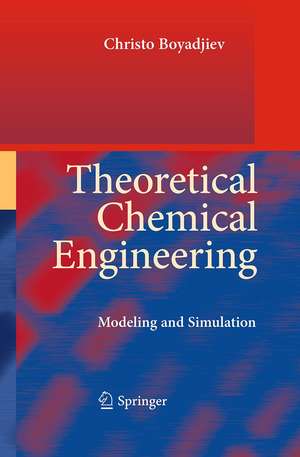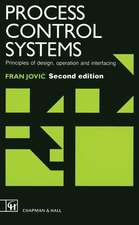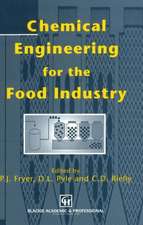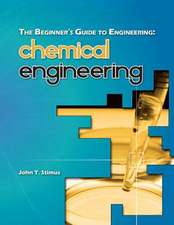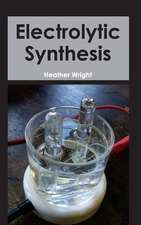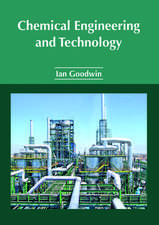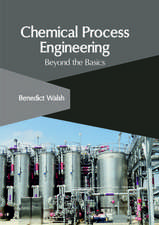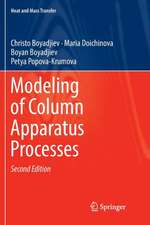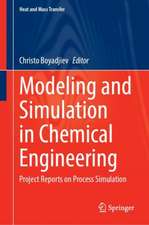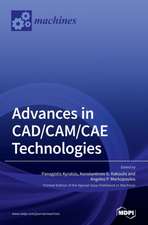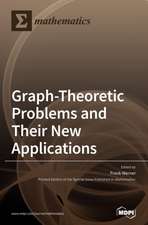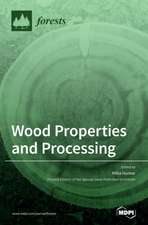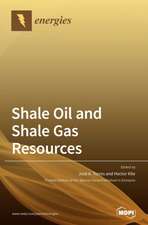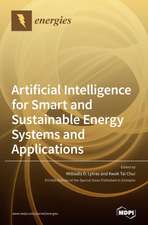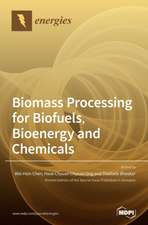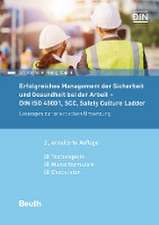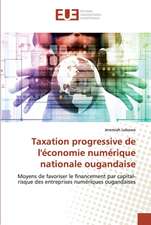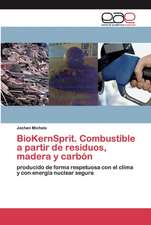Theoretical Chemical Engineering: Modeling and Simulation
Autor Christo Boyadjieven Limba Engleză Paperback – 7 noi 2014
| Toate formatele și edițiile | Preț | Express |
|---|---|---|
| Paperback (1) | 1232.26 lei 43-57 zile | |
| Springer Berlin, Heidelberg – 7 noi 2014 | 1232.26 lei 43-57 zile | |
| Hardback (1) | 1238.56 lei 43-57 zile | |
| Springer Berlin, Heidelberg – 28 oct 2010 | 1238.56 lei 43-57 zile |
Preț: 1232.26 lei
Preț vechi: 1502.76 lei
-18% Nou
Puncte Express: 1848
Preț estimativ în valută:
235.87€ • 256.29$ • 198.26£
235.87€ • 256.29$ • 198.26£
Carte tipărită la comandă
Livrare economică 21 aprilie-05 mai
Preluare comenzi: 021 569.72.76
Specificații
ISBN-13: 9783642435041
ISBN-10: 3642435041
Pagini: 624
Ilustrații: XXIX, 594 p.
Dimensiuni: 155 x 235 x 33 mm
Greutate: 0.86 kg
Ediția:2010
Editura: Springer Berlin, Heidelberg
Colecția Springer
Locul publicării:Berlin, Heidelberg, Germany
ISBN-10: 3642435041
Pagini: 624
Ilustrații: XXIX, 594 p.
Dimensiuni: 155 x 235 x 33 mm
Greutate: 0.86 kg
Ediția:2010
Editura: Springer Berlin, Heidelberg
Colecția Springer
Locul publicării:Berlin, Heidelberg, Germany
Public țintă
ResearchDescriere
The role of theory in science was formulated very brilliantly by Max Planck: Experimenters are the striking force of science. The experiment is a question which science puts to nature. The measurement is the registration of nature’s answer. But before the question is put to nature,it must be formulated. Before the measurement result is used,itmust be explained, i.e., the answer must be understood correctly. These two problems are obligations of the theoreticians. Chemical engineering is an experimental science, but theory permits us to formulate correct experimental conditions and to understand correctly the exp- imental results. The theoretical methods of chemical engineering for modeling and simulation of industrial processes are surveyed in this book. Theoretical chemical engineering solves the problems that spring up from the necessity for a quantitative description of the processes in the chemical industry. They are quite different at the different stages of the quantitative description, i.e., a wide circle of theoretical methods are required for their solutions. Modeling and simulation are a united approach to obtain a quantitative description of the processes and systems in chemical engineering and chemical technology, which is necessary to clarify the process mechanism or for optimal process design, process control, and plant renovation. Modeling is the creation of the mathematical model, i.e., construction of the mathematical description (on the basis of the process mechanism), calculation of the model parameters (using experimental data), and statistical analysis of the model adequacy.
Cuprins
Model Construction Problems.- Simple Process Models.- Complex Process Models.- Mass Transfer Theories.- Theoretical Analysis of Models.- Qualitative Analysis.- Quantitative Analysis.- Stability Analysis.- Calculation Problems.- Solution of Differential Equations.- Parameter Identification (Estimation).- Optimization.- Chemical Plant Systems.- Systems Analysis.- Synthesis of Systems.
Textul de pe ultima copertă
This survey presents the theoretical methods of chemical engineering for modeling and simulation of industrial processes. On this base it is possible to formulate correct experimental conditions and to understand rightly the experimental results. The book uses the mechanics of continuous media approach for modeling of the simple processes as hydrodynamic processes, mass and heat transfer processes. The theory of the scalar, vector and tensor fields permit to create the basic equations and boundary conditions. The problems of rheology, turbulence, turbulent diffusion and turbulent mass transfer are examined too.
The book incorporates a lot of fundamental knowledge, but it is assumed that the readers are familiar with the mathematics at engineering level and that they thought some special topics in usual university courses. It includes examples at the end of all chapters using the author’s investigations. Therefore, it is highly valuable for scientists as well as graduate and PhD students.
Caracteristici
Presents the theoretical methods of chemical engineering for modeling and simulation of industrial processes
Enable the reader to formulate correct experimental conditions and to understand rightly the experimental results
Incorporates a lot of fundamental knowledge
Includes supplementary material: sn.pub/extras
Enable the reader to formulate correct experimental conditions and to understand rightly the experimental results
Incorporates a lot of fundamental knowledge
Includes supplementary material: sn.pub/extras
